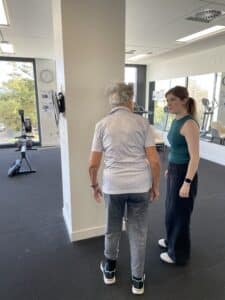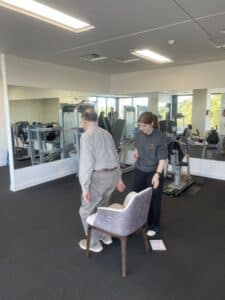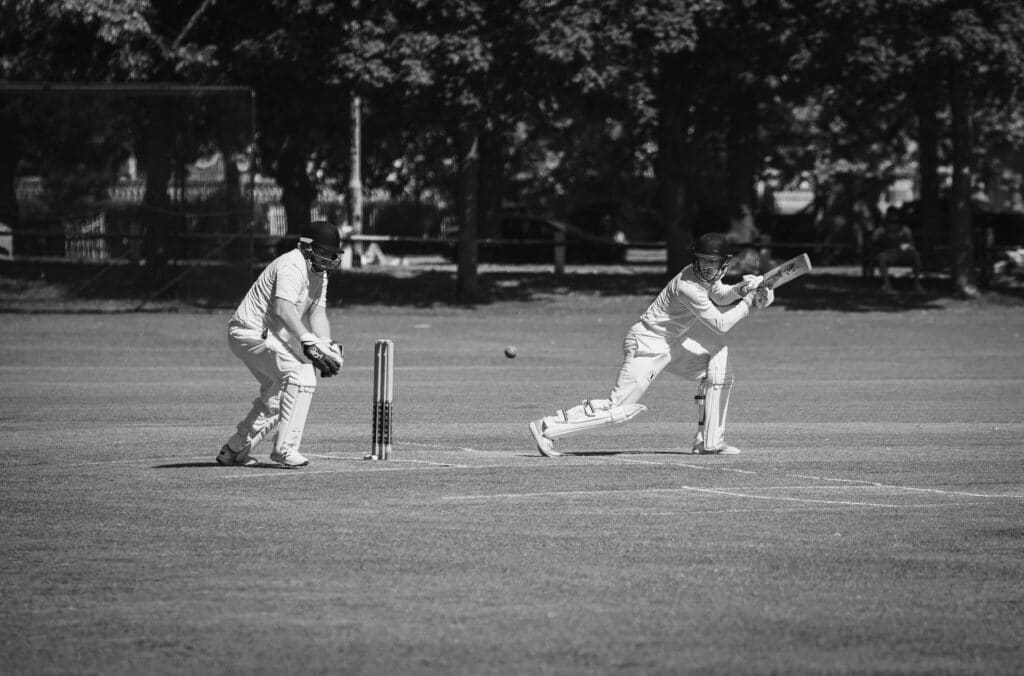How to achieve better balance
What we’ll cover
Did you know that one-third of people over the age of 65 have experienced a fall within the past 12 months? Scarily, the most common place for a fall to occur is in or around the home.
Importantly, decreased balance and a fear of falling is not a normal process of ageing or getting older. Our physiotherapist Jason Lee delves into how to achieve better balance and reduce the risk of having a fall.
How does balance work?
Maintaining our balance and preventing falls relies on a number of your body’s systems working together. These systems are constantly providing signals to our brain to assist us with maintaining our balance and posture. These systems includes our:
- Vestibular System (inner ear). Your inner ear has a many nerves and structures that work in conjunction with other systems to help detect your position and head movement. By detecting these changes in position, this helps to maintain our balance and posture.
- Visual System. Your visual system constantly provides information about the surrounding environment and spacial orientation. This assists us to judge space, distances, detect obstacles and prevent falls.
- Proprioception (awareness of body position). Your proprioceptive system includes the nerve endings that supply muscles, tendons and joints. These nerves provide feedback whenever there is stretch, contraction or movement. This helps us balance and co-ordinate movements by providing information about our body parts relative to each other and the environment.
- Muscular system. The strength and power of your muscles are responsible for not only keeping you upright, but also responding to any changes. Having enough strength and power allows us to respond quickly to any changes to our balance or centre of gravity.
Having all these systems working together helps to keep us upright and prevent any falls. Issues such as muscle weakness, poor joint mobility, decreased physical activity, inner ear problems and some certain medications are only some of the reasons our balance can be reduced.
How can physiotherapists assess balance?
Your physiotherapist is well equipped to assess balance and your risk of falling. Your balance assessment includes thorough questions around your medical history, falls history, exercise history and any other factors that may increase your risk of falling.
A typical balance assessment includes assessing your static balance and dynamic balance.
Static balance tests include assessing your balance in stationary positions. This includes balance tests such as standing with your feet closer together, standing on one leg, or testing stationary positions with your eyes closed.
Dynamic balance tests assess your balance whilst moving and changing your centre of gravity. This can include tests such as steps ups, repetitive sit to standing or mobility tests that involve walking or other functional tasks.
In addition to these assessments, your physiotherapist will also thoroughly assess your musculoskeletal system including your joint flexibility and muscle strength and endurance. At ME Physio we use special technology including force plates and muscle dynamometers to get the most accurate findings.
How can I improve my balance?
Decreased balance and increased risk of falling are not normal parts of ageing. Being as fit and as strong as possible is a great starting point. Regular exercise that includes cardiovascular and strength exercise is a great starting point.
In addition, specific balance and re-training exercises can reduce the risk of falling by practicing the regular reflex responses. These exercises are designed to be challenging for your balance and should be done in a safe environment with something secure to hold onto if required.
Exercises to improve balance:
- Tight rope walking – Walk heel to toe forwards and backwards.
- Flamingo – Standing on one leg. Lift one leg up towards your chest aiming to achieve 90 degrees at the hip and the knee.
- Alternating punches – Standing on one leg. Punch a light weight across your body alternating left and right. This exercise can also be done without a light weight as the movement will still move your centre of gravity.
These exercises can be performed on a daily basis to improve your balance, strength and confidence. With practice and consistency, your balance will gradually improve over time.
Physiotherapists can perform thorough balance assessments and design specific exercise programs to meet your needs. At Me Physio, our team have various programs specifically to help maintain your functional strength, balance and independence. We have extensive experience especially with older adults and have specific exercise classes run by our physiotherapists to improve your strength and balance.
If you are concerned about any aspect of your balance consult our team at ME Physio. Call us at 9571 6888 or book online.
















